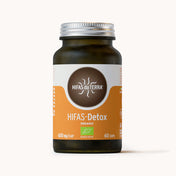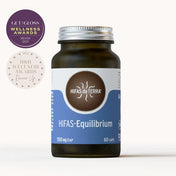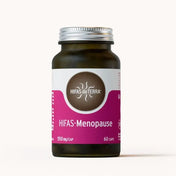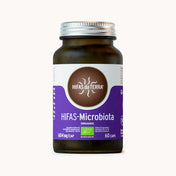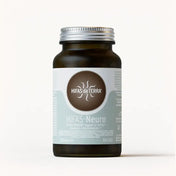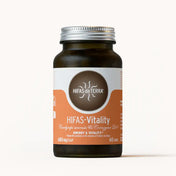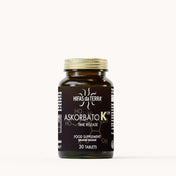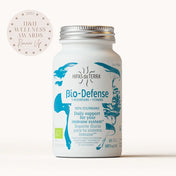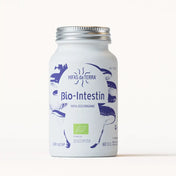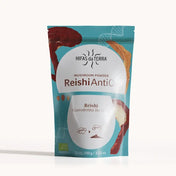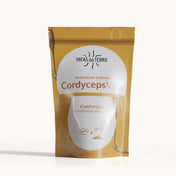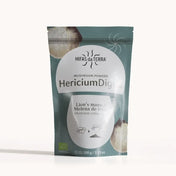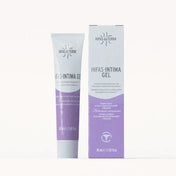The Sunshine Vitamin: How Vitamin D Relieves Muscular Aches and Pains
Let’s explore the world of the “sunshine vitamin,” also known as Vitamin D, an essential nutrient that does so much more than keep our bones strong! You might already know it’s crucial for our mental health and immunity, but did you know it's also a fantastic support for helping to reduce muscular pain?

Vitamin D and Muscular Pain
So, how does Vitamin D come to the rescue regarding muscle discomfort? This superstar nutrient supports muscle function, reduces inflammation, and increases calcium absorption, key components for healthy muscle contraction. When we’re deficient in Vitamin D, we might experience muscle weakness and discomfort. Plus, if you’re dealing with chronic pain conditions, it’s common to find low levels of Vitamin D hanging around. Optimising your levels can help us feel stronger, recover quicker, and minimise pain.
Vegan sources of vitamin D
If you’ve been looking into Vitamin D food sources, you’ve probably encountered the usual suspects like oily fish, eggs, and meat. But what if you follow a vegan lifestyle? No worries! You can still get your Vitamin D fix from plant-based options like Vitamin D3 sourced from lichen and algae. It’s a natural and effective alternative to keep your levels up

Natural Sources of Vitamin D
While soaking up the sun is the best way to get your Vitamin D fix, don’t forget about some tasty food sources that contain vitamin D, and help with its absorption! Check out these gems that can help increase your levels:
- Mushrooms: Portobello, Maitake, Shiitake, and White Button mushrooms all pack a punch of Vitamin D. Pro tip: place them gill side up in sunlight to increase their Vitamin D content - how cool is that? Button mushrooms are also a great source of ergosterol, the precursor to vitamin D.
- Algae (Chlorella and Spirulina): This nutrient-rich green algae is often hailed as a “superfood” that helps support overall recovery with anti-inflammatory properties, and is a glorious addition to your diet.
- Bananas: One of our most loved fruits, is rich in magnesium and is essential for Vitamin D metabolism. It acts as a cofactor for the enzymes that convert Vitamin D in the kidneys from its inactive form (calcifediol) to its active D3 (calcitriol). In one medium banana, you can expect to find up to 32mg of magnesium.
- Pomegranate: A versatile fruit rich in nutrients. Including pomegranate in your meals as a result of its high vitamin K (a fat-soluble vitamin) content, and can help with the processes responsible for the absorption of vitamin D. A 174g serving offers 28.5 micrograms, which is 24% of your RDA of vitamin K.
- And remember, while fruits generally don’t carry a lot of Vitamin D, fortified options like certain orange juices can help you out.
How These Foods Help Relieve Muscle Pain
It’s true: low Vitamin D levels can lead to muscle pain and weakness. Supplementing can improve muscle strength and ease discomfort, especially for those who start with lower levels. This nutrient is a game-changer! Low levels of Vitamin D show a high correlation with an increase in chronic pain conditions and may exacerbate issues like fibromyalgia, leading to muscle weakness and discomfort. Incorporating these natural sources into your diet:
- Supports Muscle Function: Vitamin D helps regulate muscle contractions, reducing cramping and spasms.
- Eases Inflammation: Anti-inflammatory compounds in algae and mushrooms can reduce muscle soreness.
- Enhances Recovery: Pairing Vitamin D with magnesium-rich foods like bananas and okra optimises muscle repair.
Summary
In conclusion, Vitamin D is much more than just an immune-strengthening nutrient - it is crucial for maintaining strong, pain-free muscles. While sunlight remains the best source of ensuring you get enough Vitamin D, whether through food or supplements, can significantly affect how your muscles feel and function. If you’re experiencing muscular aches or chronic pain, increasing your Vitamin D intake could be the key to finding relief.
